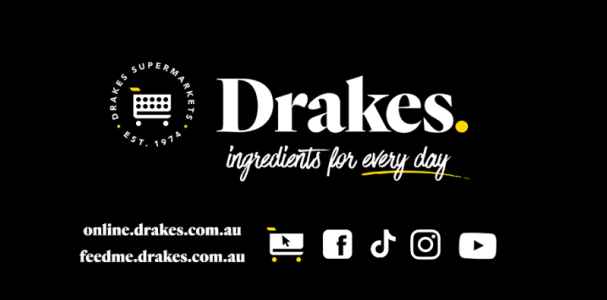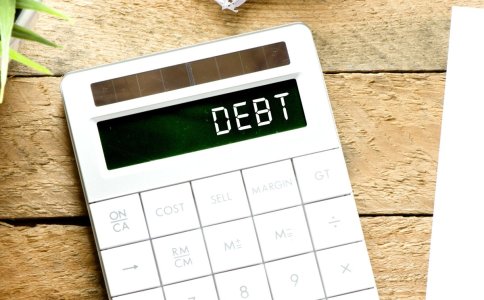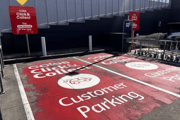Group warns against ‘very dangerous trap’ for customers as supermarket adopts Afterpay
We've been hearing a lot about the wonders of 'Buy Now, Pay Later' (BNPL) schemes lately—but even though the service looks like an excellent way to save some money on groceries up front, a welfare group wants to make sure consumers don't end up in a bad place further down the track.
You see, South Australian-based grocer Drakes—which also operates in Toowoomba, Brisbane and Gladstone—recently introduced an Afterpay option at more than 60 stores.
The payment method allows items like groceries to be paid off in instalments and charges late fees for missed payments.
The retailer claimed they had reservations about Afterpay initially, but they’ve seen a customer demand for its service.
Drakes Supermarkets Director John-Paul Drake said: ‘We've introduced Afterpay across the whole network, so in South Australia and Queensland.’
‘[At first] I looked at Afterpay like, “Well, if you're using Afterpay, that means you're struggling to pay for something,” and when we started to actually look into it, that wasn't the case at all,’ he explained.
‘It's not saying that people don't have money. We had so many customers asking us [if] we accept Afterpay, so we then investigated it, and we thought, “OK, well, this is OK for us to roll out.”’
On the surface, it seems like a great way to minimise upfront costs while shopping. Deals like are also seen as a modern form of lay-by.
If a payment deadline isn't met, late fees of up to $10 could be charged, placing customers in a risky situation, according to the South Australian Council of Social Service (SACOSS).
‘They've been largely unregulated as provision mechanisms for people to get debt, and in that context, they don't actually get the scrutiny and the attention and don't have the transparency, that we think is really appropriate,’ SACOSS CEO Ross Womersley claimed.
He added: ‘That's much more interest than people are paying on other credit systems if you're using a credit card, and so it's a very, very dangerous debt trap to people to get captured by.’
Due to the nature of Afterpay, Mr Womersley urged Drakes Supermarkets to reconsider its implementation.
‘Enticing people to use credit to do that is all well and good for anybody that can afford to meet their repayments when they fall due,’ he said.
‘But in this instance, we think that this is just an enticement that is just completely unnecessary, and in fact, we'd be really encouraging Drakes to really walk away from continuing to offer these types of products.’
Other businesses like Western Australian supermarket chain Spudshed and discount retailer Cheap as Chips use Afterpay.
As for Drakes, they assured that they were not receiving money from the service. In fact, they had to pay ‘a percentage’ of their transactions that went through the system.
‘Merchants offering Afterpay’s pay-in-four products will pay a merchant fee,’ a spokesperson for Drakes stated.
‘Shoppers have been using credit cards for these purposes for decades—and this is an interest-free (when paid on time) alternative,’ they added.
The spokesperson also claimed that Afterpay service demonstrated ‘strong consumer outcomes’ in the second quarter of 2023, with 98 per cent of purchases not incurring late fees and 95 per cent of instalments paid on time’.
‘We don't let customers keep spending if they are behind on payments,’ the spokesperson shared.
‘We cap our late fees, and we don't allow customers to revolve in debt.’
In May, we reported that the Australian government had implemented stricter regulations for Buy Now, Pay Later (BNPL) services, treating them as credit products. This is in response to concerns about the risks posed by BNPL, such as high levels of debt and difficulty in managing repayments.
Our members have mixed reactions—while some use the service, some prefer to do their transactions outright.
‘I have never used it. If I can't pay, I do not buy,’ member @Jest wrote.
Member @Trudi shared: ‘I am also a retired accountant. I have two no-fee credit cards used to pay for nearly everything I purchase, and both cards are paid in full each month. If any business is charging fees for credit/debit cards, I insert the card and select “savings” to pay.’
‘As for buy now/pay later, I never have and never will use those,’ the member added.
Meanwhile, other members benefit from the payment scheme. As member @Freeman27 put it: ‘I often avail myself of the PayPal service of four payments, but I never purchase anything through them unless I have the full amount already available. I have found it very helpful for larger purchases.’
‘I use Afterpay a Pay in 4 all the time—it evens out costs that come in peaks and troughs and makes me feel more in control- having said that, I always buy things I really need and that I know I can afford, one of the benefits of a fixed income,’ member @DrivingGirl commented.
‘I have never defaulted or been late as I regard this as a privilege, not a right, and it can be taken away at the drop of a hat. I have earned that privilege by being responsible and diligent,’ they continued.

What’s your take on this story, members? Should Drakes Supermarket continue adding the Afterpay service to their stores? Let us know in the comments below!
You see, South Australian-based grocer Drakes—which also operates in Toowoomba, Brisbane and Gladstone—recently introduced an Afterpay option at more than 60 stores.
The payment method allows items like groceries to be paid off in instalments and charges late fees for missed payments.
The retailer claimed they had reservations about Afterpay initially, but they’ve seen a customer demand for its service.
Drakes Supermarkets Director John-Paul Drake said: ‘We've introduced Afterpay across the whole network, so in South Australia and Queensland.’
‘[At first] I looked at Afterpay like, “Well, if you're using Afterpay, that means you're struggling to pay for something,” and when we started to actually look into it, that wasn't the case at all,’ he explained.
‘It's not saying that people don't have money. We had so many customers asking us [if] we accept Afterpay, so we then investigated it, and we thought, “OK, well, this is OK for us to roll out.”’
On the surface, it seems like a great way to minimise upfront costs while shopping. Deals like are also seen as a modern form of lay-by.
If a payment deadline isn't met, late fees of up to $10 could be charged, placing customers in a risky situation, according to the South Australian Council of Social Service (SACOSS).
‘They've been largely unregulated as provision mechanisms for people to get debt, and in that context, they don't actually get the scrutiny and the attention and don't have the transparency, that we think is really appropriate,’ SACOSS CEO Ross Womersley claimed.
He added: ‘That's much more interest than people are paying on other credit systems if you're using a credit card, and so it's a very, very dangerous debt trap to people to get captured by.’
Due to the nature of Afterpay, Mr Womersley urged Drakes Supermarkets to reconsider its implementation.
‘Enticing people to use credit to do that is all well and good for anybody that can afford to meet their repayments when they fall due,’ he said.
‘But in this instance, we think that this is just an enticement that is just completely unnecessary, and in fact, we'd be really encouraging Drakes to really walk away from continuing to offer these types of products.’
Other businesses like Western Australian supermarket chain Spudshed and discount retailer Cheap as Chips use Afterpay.
As for Drakes, they assured that they were not receiving money from the service. In fact, they had to pay ‘a percentage’ of their transactions that went through the system.
‘Merchants offering Afterpay’s pay-in-four products will pay a merchant fee,’ a spokesperson for Drakes stated.
‘Shoppers have been using credit cards for these purposes for decades—and this is an interest-free (when paid on time) alternative,’ they added.
The spokesperson also claimed that Afterpay service demonstrated ‘strong consumer outcomes’ in the second quarter of 2023, with 98 per cent of purchases not incurring late fees and 95 per cent of instalments paid on time’.
‘We don't let customers keep spending if they are behind on payments,’ the spokesperson shared.
‘We cap our late fees, and we don't allow customers to revolve in debt.’
In May, we reported that the Australian government had implemented stricter regulations for Buy Now, Pay Later (BNPL) services, treating them as credit products. This is in response to concerns about the risks posed by BNPL, such as high levels of debt and difficulty in managing repayments.
Our members have mixed reactions—while some use the service, some prefer to do their transactions outright.
‘I have never used it. If I can't pay, I do not buy,’ member @Jest wrote.
Member @Trudi shared: ‘I am also a retired accountant. I have two no-fee credit cards used to pay for nearly everything I purchase, and both cards are paid in full each month. If any business is charging fees for credit/debit cards, I insert the card and select “savings” to pay.’
‘As for buy now/pay later, I never have and never will use those,’ the member added.
Meanwhile, other members benefit from the payment scheme. As member @Freeman27 put it: ‘I often avail myself of the PayPal service of four payments, but I never purchase anything through them unless I have the full amount already available. I have found it very helpful for larger purchases.’
‘I use Afterpay a Pay in 4 all the time—it evens out costs that come in peaks and troughs and makes me feel more in control- having said that, I always buy things I really need and that I know I can afford, one of the benefits of a fixed income,’ member @DrivingGirl commented.
‘I have never defaulted or been late as I regard this as a privilege, not a right, and it can be taken away at the drop of a hat. I have earned that privilege by being responsible and diligent,’ they continued.
Key Takeaways
- Supermarket chain Drakes has introduced Afterpay as a payment option across its stores.
- The move has been criticised by social welfare group SACOSS, who warn it could lead to consumers falling into a 'dangerous debt trap'.
- Drakes Supermarkets director John-Paul Drake defended the decision, saying demand was driven by customers and likened Afterpay to a credit card.
- Afterpay insists its business model is built on receiving fees from merchants rather than from consumers via debt defaults.
What’s your take on this story, members? Should Drakes Supermarket continue adding the Afterpay service to their stores? Let us know in the comments below!









